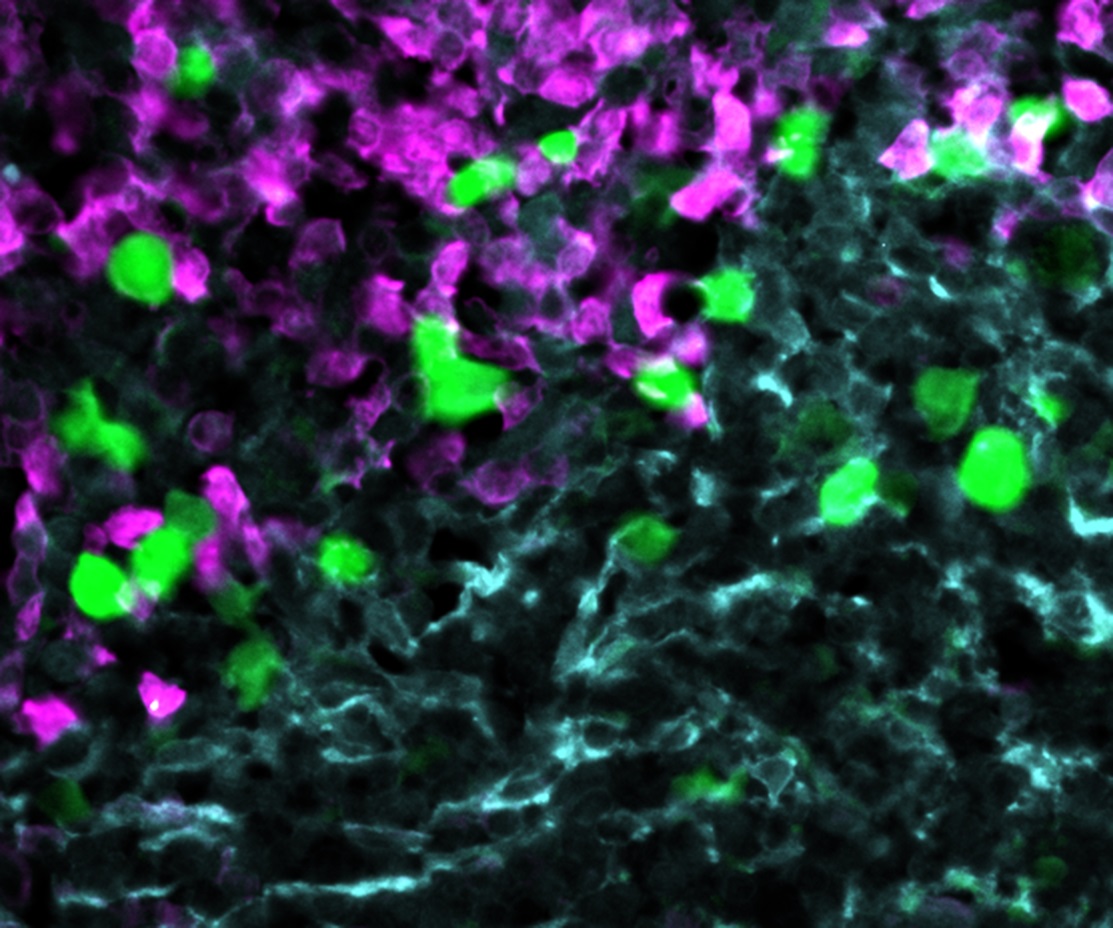
News
€4.6 million for a novel CAR T-cell therapy
30.05.2023 / While CAR-T cells have proven successful in treating certain types of leukemia and lymphoma, these immunotherapies can become even more effective. A clinical trial run by Charité and the Max Delbrück Center has been awarded a grant of several million euros to test a new approach.

CAR T-cell therapies are often the last resort for patients with certain types of leukemia and lymphoma who do not respond to standard treatments. This technique involves taking immune cells (T cells) from the patient and equipping them with a chimeric antigen receptor (CAR) in the laboratory. The CAR acts like a tiny antenna, patrolling the body’s cells for specific features on the cancer cells. Once the CAR T cells are re-introduced back into the patient’s body, they begin to detect and destroy cancer cells with the antigen that fits their new receptors.
The research labs of Dr. Uta Höpken and Dr. Armin Rehm at the Max Delbrück Center have developed a novel approach to CAR-T cell therapy for B non-Hodgkin’s lymphomas, a type of lymph node cancer that originates from B lymphocytes. Under the direction of Professor Ulrich Keller and Professor Lars Bullinger of Charité – Universitätsmedizin Berlin, the new immunotherapy will be tested in humans for the first time in a phase I/IIa trial. The German Federal Ministry of Education and Research (BMBF) is funding the joint project of Charité and the Max Delbrück Center to the tune of €4.6 million. In doing so, it aims to bring forward therapies to tackle currently untreatable or difficult to treat diseases.
CXCR5: An easy target for CARs
The CARs approved so far to treat leukemias and lymphomas usually dock to the antigen CD19, a surface molecule on B cells that can undergo malignant transformation and become cancerous. Höpken and Rehm have identified a molecule called CXCR5 that is likely an even better target for a CAR T-cell therapy against lymphomas. Unlike CD19, which may be present on cancer cells in varying amounts from patient to patient and can even be lost, CXCR5 is found uniformly on all mature lymphoma cells. Another advantage is that it is found not only on tumor B cells, but also on certain T helper cells that promote tumor growth. “These properties make CXCR5 a unique target for CAR T-cell therapies,” says Höpken. In mouse models, the researchers were able to show that the CAR T cells are particularly good at finding CXCR5 and eliminating the tumor cells. Clinical trials will determine whether the new immunotherapy is safe and effective in humans. Together with his team, Professor Ulrich Keller, Director of Charité’s Department of Hematology, Oncology and Tumor Immunology at Campus Benjamin Franklin, is preparing initial studies with a few selected patients: “We are confident that this phase I study will demonstrate the safety of the new CXCR5-CAR-T cell therapy and also find initial indications of its efficacy. What makes this approach promising and highly innovative is that it therapeutically addresses both the tumor cell and its supporting microenvironment.”
The team will begin recruiting up to 24 subjects as soon as they receive approval from the Berlin State Office for Health and Social Affairs (LAGeSo) for the cell product manufacturing and from the Paul-Ehrlich-Institut (PEI), the Federal Institute for Vaccines and Biomedicines, for the clinical trial. The scientists expect these first steps will be completed by early 2024. Initially, the trial will include only patients in whom the standard therapy has not worked.
Text: Jana Ehrhardt-Joswig
Source: Joint press release by the Max Delbrück Center and Charité – Universitätsmedizin Berlin€4.6 million for a novel CAR T-cell therapy